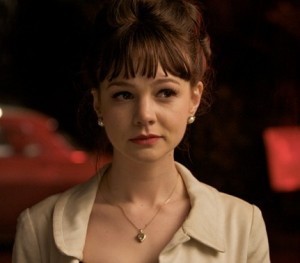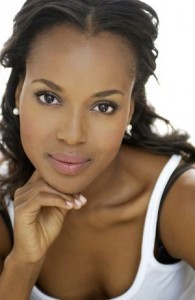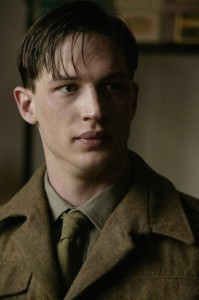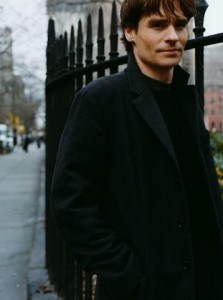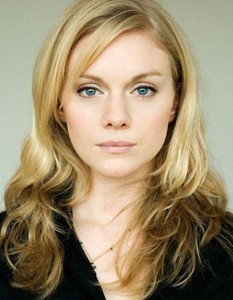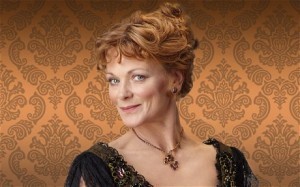Dana Swier Huff's Blog, page 53
April 24, 2012
Dragonfly in Amber (audio), Diana Gabaldon
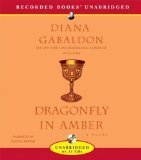 In my quest to read (or reread, as in this case) the entire Outlander series this year, I joined the Outlander Series Reading Challenge and have already completed the first book in the series, Outlander. I thought I might enjoy listening to the books this time, and Davina Porter, the narrator, does indeed do a fabulous job reading the books. She has different voices for the different characters, and she is expressive and interesting to listen to.
In my quest to read (or reread, as in this case) the entire Outlander series this year, I joined the Outlander Series Reading Challenge and have already completed the first book in the series, Outlander. I thought I might enjoy listening to the books this time, and Davina Porter, the narrator, does indeed do a fabulous job reading the books. She has different voices for the different characters, and she is expressive and interesting to listen to.
Dragonfly in Amber is the second book in the seven-book (as of today’s date) series. It begins in 1968, when Claire Randall and her daughter Brianna visit Scotland. Claire enlists the help of Roger Wakefield, adopted son of her late husband Frank’s friend Reverend Wakefield, to find out what happened to the men under the command of Jamie Fraser at the Battle of Culloden. Claire inexplicably disappeared through a cleft in the stone circle known as Craigh na Dun during a second honeymoon with her husband Frank in 1946 and wound up 200 years in the past. Before slipping back through the stones on the eve of the Battle of Culloden, Claire built a life for herself in the past as Jamie Fraser’s wife. Knowing the Highland clans will be destroyed after Culloden, Claire and Jamie work as double agents, trying to prevent the disaster. They find themselves caught up in intrigues at the French court of Louis XV before returning to Scotland.
I find this second book to be interesting for its development of Claire and Jamie’s relationship. They endure the horrible loss of their daughter Faith, an event which nearly destroys their marriage, as well as danger and privation as they find themselves swept up in Bonnie Prince Charlie’s rebellion. I join those readers who don’t enjoy the part of this novel in which Jamie and Claire live in France as much as the rest, but I found that during this reread, I actually enjoyed the frame part of the story that takes place in 1968, which I didn’t like much the first time I read the novel. I think the idea that Claire would ever return to Frank and leave Jamie just bothered me too much at the time. I found I liked the older Claire: she aged well. She’s still sexy in her 40′s, and she also became a medical doctor at a time when that profession did not include many women. I also found I liked Brianna better this time. I didn’t like her much the first time I read her, and I wonder if Davina Porter’s characterization of her contributed to my change of heart. Diana Gabaldon has said before that she had a hard time creating Brianna. I was not a huge fan of Roger Wakefield’s the first time, either, but I liked him better this time.
I noticed on this rereading, as I did with Outlander, that Gabaldon includes a lot of subplot and detail that develops characters, but doesn’t necessarily move the plot forward. Considering the length of the books, I think she could cut some of this detail without harming the character development, and I find the further I read into the series, the less patience I have for it. I may not mind so much once I start reading the books that I have never read before, but as I have reread the first two books, I’ve been annoyed by the extra details.
Still, Diana Gabaldon has a gift for creating characters and setting, and the end of the book, even on a reread, was unputdownable.
Rating: 4 out of 5 stars
[image error]
Post © Dana Huff
Dragonfly in Amber (audio), Diana Gabaldon

April 22, 2012
Harry Potter and the Chamber of Secrets, J. K. Rowling
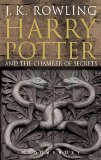 If you have visited recently, you may recall I’m rereading the Harry Potter series on e-book after receiving the wonderful digital gift of the entire series, British versions. Harry Potter and the Chamber of Secrets does not have as many differences from the American version. Once again, upon reading it, I was struck with how much of the foundation for the rest of the series is laid in Chamber of Secrets.
If you have visited recently, you may recall I’m rereading the Harry Potter series on e-book after receiving the wonderful digital gift of the entire series, British versions. Harry Potter and the Chamber of Secrets does not have as many differences from the American version. Once again, upon reading it, I was struck with how much of the foundation for the rest of the series is laid in Chamber of Secrets.
First, the nasty prejudice against Muggle-borns is first brought to light when Malfoy calls Hermione a “mudblood,” and she and Harry learn what it means from Ron and Hagrid. I never liked the fact that the movies put too many other characters’ lines in Hermione’s mouth, but always thought one of the most egregious violations was when Hermione herself explains to Harry what a mudblood is rather than Ron. After all, as much as she reads, she was still brought up in the Muggle world, just as Harry was, whereas Ron has only grown up among wizards. The reader doesn’t learn how deeply this prejudice against Muggle-born wizards runs until Chamber of Secrets. The only inkling the reader has that it’s a problem in Philosopher’s Stone is an offhand remark Draco Malfoy makes in Madam Malkin’s while he and Harry are being fitted for robes, and he is the only character in the book (if memory serves) who exhibits the prejudice. In Chamber of Secrets, we learn Tom Riddle/Voldemort shared the prejudice to the point that he set a monster on Muggle-borns when he was at school, killing Moaning Myrtle, and we also learn that not only do quite a few modern Slytherins share this prejudice, but also that the founder of the house, Salazar Slytherin, left Hogwarts and destroyed his friendship with Godric Gryffindor over the issue. The pervasiveness of the prejudice is really uncovered for the first time in Chamber of Secrets.
Another important issue in the books, starting with Harry Potter and the Half-Blood Prince, is the destruction of Voldemort’s horcruxes. We don’t find out what horcruxes are until Dumbledore explains them to Harry in Half-Blood Prince, but a reread of Chamber of Secrets reveals that Dumbledore definitely suspected Harry himself was a horcrux as early as Chamber of Secrets. Harry says, “Voldemort put a bit of himself in me?” Dumbledore replies, “It certainly seems so,” and explains that he didn’t think Voldemort meant to do it. Of course, Harry often hears a nasty little voice in his head, and he somehow intuits how to destroy the diary horcrux without knowing how he knows. His ability to speak Parseltongue probably stems from the horcrux inside him, and I have often wondered if he retained the ability after Voldemort destroyed that horcux, or if he lost it. It seems likely he lost it, but who knows?
We are also introduced to house elves and their peculiar enslavement and magic in Chamber of Secrets. House elves become a huge issue later on when Barty Crouch uses his to hide a horrible secret and winds up setting a Death Eater loose to help Voldemort rise again and subsequently loses his life. We also see how Kreacher’s mistreatment at the hands of Sirius Black costs Sirius his life, and how Harry is able to turn Kreacher’s feelings around through kindness. Hermione, of course, takes up the cause of house elves in Goblet of Fire.
We also learn for the first time about Polyjuice Potion, which allows witches or wizards to disguise themselves as other people. Rowling was so careful to insert the incident when Harry, Ron, and Hermione brew Polyjuice Potion so they can quiz Malfoy about his involvement with opening the Chamber of Secrets, and given that they don’t really learn much useful information, it seems a sort of throwaway plot line, but it does enable them to become acquainted with Moaning Myrtle, and later on, when Barty Crouch, Jr., uses it to disguise himself as Mad-Eye Moody, we don’t suspect it until the end-of-the-novel reveal, when we learn how Rowling has hoodwinked us yet again while laying the clues out for all to see. Of course, it’s also used in Harry Potter and the Deathly Hallows when Harry is transported to the Burrow. I suppose the only thing that prevents Polyjuice Potion from wreaking utter chaos in the Magical World is that 1) Polyjuice Potion is difficult to brew, and presumably not every witch and wizard is up to it; and 2) the ingredients are hard to come by—even Barty Crouch, Jr., is forced to pilfer them from Snape’s stores in order to get them.
This book also contains a character Rowling insists is based on a real person—Gilderoy Lockhart. The real person must have been truly awful for Rowling to exact such revenge upon him/her in the form of Gilderoy Lockhart. What a truly amazing character. So much fun to read and so much fun to hate. I love how Ron is really the first person to have the true measure of Lockhart. When someone points out to Ron all the amazing things Lockhart has done, he mutters under his breath, “He says he’s done.” Ron is the first character to insinuate Lockhart lied about his accomplishments. Even smart Hermione doesn’t see through Lockhart. We also learn for the first time that the Defense Against the Dark Arts teacher job is hard to keep filled in this book as well. The DADA teachers seem to be the Red Shirts of the Harry Potter universe. Hagrid tells the trio that Lockhart was the only man willing to take the job and that people seemed to feel the job was cursed.
All of that said, this book is not necessarily my favorite in the series, but I always forget how much I like it until I reread it. It’s quite funny in some places, and it’s really important in terms of laying the cornerstone for the focus of the series. When I read the series first, only the first four books had been released, and rereading this time is bringing back a little of the memory of all the speculating and waiting to find out if I was right. I really wish I could tell J. K. Rowling how much these books mean to me.
Rating: 5 out of 5 stars
[image error]
Post © Dana Huff
Harry Potter and the Chamber of Secrets, J. K. Rowling

April 12, 2012
Harry Potter and the Philosopher’s Stone, J. K. Rowling
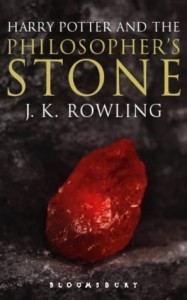 A friend of mine gave me the wonderful gift of all of the Harry Potter books in e-book format. I just reread the first on my Kindle, and I must say that visiting Harry Potter’s wizarding world feels as comfortable as curling up under a warm blanket, snug against the cold. I realized on this reading that I have much of the book memorized at this point, but this was the first time I read the British version, Harry Potter and the Philosopher’s Stone. My friend managed to get the British versions of the books for me, and after reading just this one, I much prefer the British versions. I have always thought the American title for this book was foolish dumbing-down for Americans, as though Americans couldn’t be expected to be familiar with the Philosopher’s Stone. I remember being confused when I first read it, thinking that the Sorcerer’s Stone sounded a lot like the Philosopher’s Stone, and wondering why Rowling didn’t use that term, only to find out she did, but that her American editors changed it. Grrr.
A friend of mine gave me the wonderful gift of all of the Harry Potter books in e-book format. I just reread the first on my Kindle, and I must say that visiting Harry Potter’s wizarding world feels as comfortable as curling up under a warm blanket, snug against the cold. I realized on this reading that I have much of the book memorized at this point, but this was the first time I read the British version, Harry Potter and the Philosopher’s Stone. My friend managed to get the British versions of the books for me, and after reading just this one, I much prefer the British versions. I have always thought the American title for this book was foolish dumbing-down for Americans, as though Americans couldn’t be expected to be familiar with the Philosopher’s Stone. I remember being confused when I first read it, thinking that the Sorcerer’s Stone sounded a lot like the Philosopher’s Stone, and wondering why Rowling didn’t use that term, only to find out she did, but that her American editors changed it. Grrr.
Aside from the fact that the British version is better, it’s a joy to return to this world that Rowling crafts so fully and so beautifully again and look around. Her books are always just as good as I remembered them. Harry, Ron, and Hermione are always as wonderful and winsome as they were the first time. I think Rowling has something of Dickens’s gift for crafting characters. The first time I read the books, I was struck by Rowling’s wordplay, too, and I still enjoy it when I reread.
There are not many books that I reread frequently, but the Harry Potter books certainly are, and I find something new to enjoy and marvel at each time. This time, for instance, I read Harry Potter and the Philosopher’s Stone after having experienced that book on Pottermore. I had the extra information about wandlore, Quirrell’s house at Hogwarts, and McGonagall’s history in mind as I read. I won’t share that information, as it is spoilery, and if you didn’t manage to get into the Beta version of Pottermore, you might wish to explore it on your own and discover the information as you navigate the site. Besides, if you want the spoilers, you can find them elsewhere online. Reading the book made me want to hop on Pottermore and reread some of those sections on the site. I remember how unexpectedly moved I felt when I got my wand, and how happy I was to be sorted in Ravenclaw (I always knew I was a Ravenclaw).
I thoroughly enjoyed the experience of reading this book on my Kindle, too. I often highlight and annotate more in my Kindle books, as I don’t necessarily share them with other family members (and we certainly share Harry Potter books), and I also don’t feel like I’m defacing books. I have a peculiar aversion to writing in books. It does not bother me to write in textbooks or professional reading; in fact, I mark those books up quite a lot. I don’t like annotating fiction, though. What I should say is I don’t like annotating print fiction. I annotate e-books quite a lot. Reading this book on my Kindle gave me license to highlight all my favorite parts and take notes on connections I made. I enjoyed reading the book in this way. Perhaps if I didn’t have a hangup about writing in my print books, reading e-books wouldn’t feel that different to me, but I am finding that I actually prefer e-books lately because I feel I can write in them.
Of course, I finish this book as the book world is buzzing about J. K. Rowling’s new book, The Casual Vacancy, set for release in September. The readers will, of course, just be outraged that it’s not Harry Potter, but I think Rowling is right to go for something completely different. It will be expensive: nearly $35 for hardback and $20 for the e-book (Amazon has it for pre-order in hardback at $21.00). I’ve never paid so much for an e-book, and I can’t see myself rushing out to buy the book at those prices.
The Guardian also recently ran a lovely piece on rereading: “The Pleasures of Rereading” by Tom Lamont.
Rating: 5 out of 5 stars
[image error]
Post © Dana Huff
Harry Potter and the Philosopher’s Stone, J. K. Rowling

Harry Potter and the Philosopher's Stone, J. K. Rowling
 A friend of mine gave me the wonderful gift of all of the Harry Potter books in e-book format. I just reread the first on my Kindle, and I must say that visiting Harry Potter's wizarding world feels as comfortable as curling up under a warm blanket, snug against the cold. I realized on this reading that I have much of the book memorized at this point, but this was the first time I read the British version, Harry Potter and the Philosopher's Stone. My friend managed to get the British versions of the books for me, and after reading just this one, I much prefer the British versions. I have always thought the American title for this book was foolish dumbing-down for Americans, as though Americans couldn't be expected to be familiar with the Philosopher's Stone. I remember being confused when I first read it, thinking that the Sorcerer's Stone sounded a lot like the Philosopher's Stone, and wondering why Rowling didn't use that term, only to find out she did, but that her American editors changed it. Grrr.
A friend of mine gave me the wonderful gift of all of the Harry Potter books in e-book format. I just reread the first on my Kindle, and I must say that visiting Harry Potter's wizarding world feels as comfortable as curling up under a warm blanket, snug against the cold. I realized on this reading that I have much of the book memorized at this point, but this was the first time I read the British version, Harry Potter and the Philosopher's Stone. My friend managed to get the British versions of the books for me, and after reading just this one, I much prefer the British versions. I have always thought the American title for this book was foolish dumbing-down for Americans, as though Americans couldn't be expected to be familiar with the Philosopher's Stone. I remember being confused when I first read it, thinking that the Sorcerer's Stone sounded a lot like the Philosopher's Stone, and wondering why Rowling didn't use that term, only to find out she did, but that her American editors changed it. Grrr.
Aside from the fact that the British version is better, it's a joy to return to this world that Rowling crafts so fully and so beautifully again and look around. Her books are always just as good as I remembered them. Harry, Ron, and Hermione are always as wonderful and winsome as they were the first time. I think Rowling has something of Dickens's gift for crafting characters. The first time I read the books, I was struck by Rowling's wordplay, too, and I still enjoy it when I reread.
There are not many books that I reread frequently, but the Harry Potter books certainly are, and I find something new to enjoy and marvel at each time. This time, for instance, I read Harry Potter and the Philosopher's Stone after having experienced that book on Pottermore. I had the extra information about wandlore, Quirrell's house at Hogwarts, and McGonagall's history in mind as I read. I won't share that information, as it is spoilery, and if you didn't manage to get into the Beta version of Pottermore, you might wish to explore it on your own and discover the information as you navigate the site. Besides, if you want the spoilers, you can find them elsewhere online. Reading the book made me want to hop on Pottermore and reread some of those sections on the site. I remember how unexpectedly moved I felt when I got my wand, and how happy I was to be sorted in Ravenclaw (I always knew I was a Ravenclaw).
I thoroughly enjoyed the experience of reading this book on my Kindle, too. I often highlight and annotate more in my Kindle books, as I don't necessarily share them with other family members (and we certainly share Harry Potter books), and I also don't feel like I'm defacing books. I have a peculiar aversion to writing in books. It does not bother me to write in textbooks or professional reading; in fact, I mark those books up quite a lot. I don't like annotating fiction, though. What I should say is I don't like annotating print fiction. I annotate e-books quite a lot. Reading this book on my Kindle gave me license to highlight all my favorite parts and take notes on connections I made. I enjoyed reading the book in this way. Perhaps if I didn't have a hangup about writing in my print books, reading e-books wouldn't feel that different to me, but I am finding that I actually prefer e-books lately because I feel I can write in them.
Of course, I finish this book as the book world is buzzing about J. K. Rowling's new book, The Casual Vacancy, set for release in September. The readers will, of course, just be outraged that it's not Harry Potter, but I think Rowling is right to go for something completely different. It will be expensive: nearly $35 for hardback and $20 for the e-book (Amazon has it for pre-order in hardback at $21.00). I've never paid so much for an e-book, and I can't see myself rushing out to buy the book at those prices.
The Guardian also recently ran a lovely piece on rereading: "The Pleasures of Rereading" by Tom Lamont.
Rating: 5 out of 5 stars
[image error]
Post © Dana Huff
Harry Potter and the Philosopher's Stone, J. K. Rowling

April 8, 2012
Sunday Salon: Easter 2012
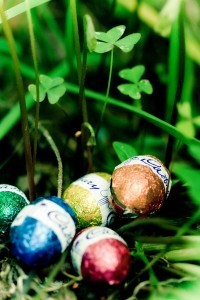 I hope everyone is having a good Easter. We have a ham in the oven. The kids received books in their Easter baskets. Dylan got The Lorax, and Maggie got The Hunger Games (that is probably kind of weird, but she has been wanting to read it). I received a gift surprise of the entire Harry Potter series in e-book format, and I decided that since I wanted to reread them anyway this year, might as well start, particularly as I was not really getting into Pandemonium. I also picked up For All the Tea in China, which looks like a great read.
I hope everyone is having a good Easter. We have a ham in the oven. The kids received books in their Easter baskets. Dylan got The Lorax, and Maggie got The Hunger Games (that is probably kind of weird, but she has been wanting to read it). I received a gift surprise of the entire Harry Potter series in e-book format, and I decided that since I wanted to reread them anyway this year, might as well start, particularly as I was not really getting into Pandemonium. I also picked up For All the Tea in China, which looks like a great read.
If you've read and finished Pandemonium, tell me: should I keep reading it? The more I think about it's prequel, Delirium, the less I like it. I'm not sure I want to invest any more in the trilogy if I am not going to like it. I think I must be missing something because plenty of folks seem to love these books. Of course, plenty of people seem to be enjoying Fifty Shades of Grey, and I know enough about myself to know I'd hate that series, so it's not like I swim with the crowd as a matter of course.
Speaking of rereading, The Guardian has a nice piece about what authors themselves like to reread.
So what are you reading this fine Easter Sunday?
[image error]
photo by:
aussiegall
Post © Dana Huff
Sunday Salon: Easter 2012

April 1, 2012
Overdue Updates
Worcester Academy on Flickr
It has been some time since I updated this blog, and as I have explained before, a job search was taking up quite a bit of my time. Not only was I not blogging much, but frankly, I wasn't reading much, either. I'm pleased to announce that particular search is over. I accepted an offer and signed a contract for the position of Technology Integration Specialist at Worcester Academy in Worcester, MA. We currently live in the Atlanta-area, so needless to say, this is a substantial move. I haven't moved this far away from a current residence in over 20 years, and I haven't even moved to a different state since 1996—and that was moving from North Carolina back to Georgia. We have no family in Massachusetts, nor do we have that many friends, but even though it's a bit of a scary prospect, we are excited about the adventure, too.
Now that a decision has been made and I can refocus my free time, I am hoping that you'll see more frequent updates here and that I will also have more time to read. I've missed that.
If you are familiar with the area around Worcester, please feel free to offer information or advice. I'm all ears. The only time I have been there was when I visited the school in March. I have only been to Massachusetts twice before. Once on a school trip with my students the first year I taught at Weber, and once on a trip to Salem with the family. Both times I thoroughly enjoyed myself. My daughter Maggie is a real history buff, so I think she will like the historical aspect of living in Massachusetts. A part of me has always been interested in the state, but I never dreamed I'd have an opportunity to live there.
[image error]
Post © Dana Huff
Overdue Updates

March 22, 2012
The American Heiress, Daisy Goodwin
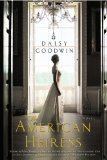 With Downton Abbey on hiatus, I've been going through withdrawal, and Daisy Goodwin's novel The American Heiress was like methadone. The American Heiress is the story of Cora Cash, daughter of a wealthy American flour company magnate. Cora is spoiled and rich; in the beginning of the novel, she compares herself to Emma Woodhouse. She is used to having her way. Her mother, ambitious and conniving, wants to see her daughter land a titled husband. Fate throws Cora quite literally in the path of Ivo Maltravers, Duke of Wareham. After a whirlwind courtship, Cora becomes the Duchess of Wareham, but she learns that accepting this title will mean she might have to give up more than she realized and live in a strange country with a man she barely knows.
With Downton Abbey on hiatus, I've been going through withdrawal, and Daisy Goodwin's novel The American Heiress was like methadone. The American Heiress is the story of Cora Cash, daughter of a wealthy American flour company magnate. Cora is spoiled and rich; in the beginning of the novel, she compares herself to Emma Woodhouse. She is used to having her way. Her mother, ambitious and conniving, wants to see her daughter land a titled husband. Fate throws Cora quite literally in the path of Ivo Maltravers, Duke of Wareham. After a whirlwind courtship, Cora becomes the Duchess of Wareham, but she learns that accepting this title will mean she might have to give up more than she realized and live in a strange country with a man she barely knows.
The similarities between this novel and Downton Abbey are a little uncanny. Cora, like the character Cora on Downton Abbey, is a rich American heiress who marries a titled aristocrat from an old family in the UK. This novel takes place during the Gilded Age and is therefore set slightly before the events of Downton Abbey begin. I enjoyed Cora's mother-in-law, the Double Duchess—so-called because she married the Duke of Buckingham after the death of her husband, the former Duke of Wareham. It may be that Goodwin was thinking of Louisa Cavendish, Duchess of Devonshire, who was also known as the Double Duchess because she married both the Duke of Manchester and the Duke of Devonshire and lived during the right period (though she may have been a bit older than Goodwin's Double Duchess). Cora's own story calls to mind the real story of Consuelo Vanderbilt, who married the Duke of Marlborough. Consuelo Vanderbilt was, of course, a rich American heiress like Cora. Consuelo's real mother-in-law was none other than the Double Duchess, Louisa Cavendish, herself. If you are a fan of this period in history and like costume drama, you would probably like this novel. It was an engaging, quick read. I did not find Cora particularly likable because she was quite spoiled and melodramatic. It was hard to feel sorry for her for too long. However, despite a lack of sympathetic characters, I found the plot of the story held my interest. If I had cared about the characters a little more, I might have been somewhat disappointed in the ending, but I found that the ending was realistic, and I'm not sure I would have liked a different ending.
Some time ago, I asked readers if they wanted me to cast books, and this book is the first book I've had a chance to cast.
Carey Mulligan
I could see Carey Mulligan as Cora Cash. She has the chestnut hair color and a certain naivete that could carry the part.
Kerry Washington
I like Kerry Washington as Bertha, Cora's maid.
Tom Hardy
Tom Hardy should play Ivo Maltravers, Duke of Wareham. The book refers often to Ivo's straight Roman nose and dark "gypsy" looks.
Robert Sean Leonard
Robert Sean Leonard (slightly younger version) as Teddy Van Der Leyden, Cora's childhood sweetheart. I don't know why other than he looks like a Teddy Van Der Leyden.
Christina Cole
Christina Cole has the sort of slithery, catlike quality that Charlotte Beauchamp needs. Charlotte is a snake in the grass, y'all. And this gal would be perfect in the role.
Samantha Bond
Samantha Bond was the only person I really cast in my head as I was reading. She is exactly how I imagined the Double Duchess. She would be so perfect!
Interesting side note (if you are still reading): The American Heiress is called My Last Duchess in UK. This title is, of course, an allusion to the Robert Browning poem. I like it, but after reading the novel, I'm not sure it's very descriptive of events in the book. I'm sure the title was changed because 1) the publisher thought Americans wouldn't get the reference and/or 2) the publisher thought Americans would like "American" in the title. Whatever.
Rating: 4 out of 5 stars
[image error]
Post © Dana Huff
The American Heiress, Daisy Goodwin

March 15, 2012
Top Ten Historical Novels
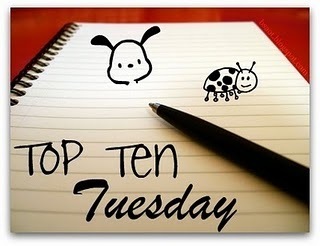 Historical fiction is my favorite genre, and I'm not sure I could pick an adequate top ten. There are so many great books that fit into this genre. You can find my list below with the following caveats: I simply haven't had a chance to read a lot of great historical fiction that's out there yet, so this list is necessarily limited to just those books I have experience with, and also I have decided not to include classics that were set during their own contemporary times but are history now (e.g. Pride and Prejudice or Jane Eyre). Also, these are in no particular order (aside from the order in which they occurred to me) because I couldn't begin to rank them. Finally, I selected these particular books out of all the historical fiction I have read and loved because they so perfectly evoke their time settings that they bring the historical eras in which they are set alive (with historical accuracy) and simply couldn't take place any other time.
Historical fiction is my favorite genre, and I'm not sure I could pick an adequate top ten. There are so many great books that fit into this genre. You can find my list below with the following caveats: I simply haven't had a chance to read a lot of great historical fiction that's out there yet, so this list is necessarily limited to just those books I have experience with, and also I have decided not to include classics that were set during their own contemporary times but are history now (e.g. Pride and Prejudice or Jane Eyre). Also, these are in no particular order (aside from the order in which they occurred to me) because I couldn't begin to rank them. Finally, I selected these particular books out of all the historical fiction I have read and loved because they so perfectly evoke their time settings that they bring the historical eras in which they are set alive (with historical accuracy) and simply couldn't take place any other time.
The Dante Club by Matthew Pearl: Not only is this book a solid thriller with fun connections to Dante's Inferno and the Fireside Poets, but it is also a great snapshot into life in Boston right after the Civil War. In terms of period detail and engaging reads, you could do worse than Matthew Pearl for sure.
Catherine, Called Birdy by Karen Cushman: This is a middle grades/early YA novel set in 1290 in England. Catherine is the daughter of a knight, and Cushman captures the Middle Ages (particularly, the lives of a family in a small manor house) in exquisite detail.
The Coffin Quilt by Ann Rinaldi: The subject of this YA novel is the feud between the Hatfields and McCoys. Told from the viewpoint of Fanny McCoy, the novel touches on all the major events of the feud and is simply one of the most well-written YA novels I've ever read.
The Paris Wife by Paula McLain: This novel about Ernest Hemingway's first marriage and time in Paris perfectly captures the lives of the American artist expatriates living in France during the 1920′s. It's a gorgeous novel.
Water for Elephants by Sara Gruen: This isn't just great historical fiction. It really captures an era and a subculture that I've not seen captured as well in any other novel. Superb read.
Jonathan Strange & Mr. Norrell by Susanna Clarke: While also classified as fantasy, this novel also explores England during the Napoleonic Wars, including brushes with Mad King George and Lord Byron as well as the Duke of Wellington. The footnotes are a great touch. I loved this novel.
Nothing Like the Sun by Anthony Burgess: I don't think I've read another historical fiction book about Shakespeare that touches this one. Burgess's characters speak like Elizabethans, and the events described are both believable and fun homages to Shakespeare's plays. The premise behind the book is that Shakespeare's tangled love life majorly influenced all of his work.
Ahab's Wife by Sena Jeter Naslund: Oh, how I love Una Spenser. She is my fictional BFF. She is amazing. I need to read this one again. As you might have guessed, this book takes the passage in Moby Dick in which Captain Ahab mentions he has a young wife at home and creates her character and her life (and it's a fascinating life that, in my opinion, puts that of her husband to shame).
The Poisonwood Bible by Barbara Kingsolver: This novel about Christian missionaries in the Belgian Congo right as the country declares its independence from Belgium is a fascinating snapshot into the Congo of the 1960′s as well as the lives of Christian missionaries and also serves as an allegory for America's own role in colonialism.
The Thorn Birds by Colleen McCullough: When I read this novel, I couldn't put it down. I haven't read a lot of books set in Australia, but this novel seems to so perfectly capture the times and setting. Meggie is an engaging heroine, and who doesn't love Father Ralph de Bricassart?
Because I read a ton of historical fiction, I need to include some honorable mentions:
The Witch of Blackbird Pond by Elizabeth George Speare: This YA novel is set in Colonial Massachusetts and is a great vehicle for middle schoolers (or even their older siblings and parents) to learn about that time period in history. I can't think of too many books that do as good a job with this era.
The Tea Rose by Jennifer Donnelly: This book is a fun read, but has a few lapses in terms of credibility (at least for this reader). Set in Whitechapel as Jack the Ripper ravages London, this novel is the story of Fiona, daughter of one of the Ripper's victims, who makes her way to New York and builds a tea empire from scratch.
The Commoner by John Burnham Schwartz: This story of a commoner's marriage into the Japanese imperial family makes for a great read, too, though Schwartz takes some liberties to make his character's ending happier than that of the real model for his heroine.
A Plague of Doves by Louise Erdrich: Some of this novel is contemporary, which is one reason I didn't include it above, but it is one of the finest novels I've read and concerns the repercussions of a murder and hate crime that sent ripples through a community for generations.
The Physick Book of Deliverance Dane by Katherine Howe: Also partly set in contemporary times, this novel concerns Connie Goodwin's attempts to learn more about her ancestors' grimoire and secret powers.
The Help by Kathryn Stockett: While this book certainly evoked Mississippi of the 1960′s, and I thoroughly enjoyed it, it did not seem as realistic to me as some of the books I included in my top ten.
Madame Tussaud by Michelle Moran: This novel, set during the French Revolution, was an excellent read and shone a spotlight on a historical figure who hasn't perhaps received as much attention as she was due.
The Shadow of the Wind by Carlos Ruiz Zafón: Barcelona's book world during the 1930′s and 1940′s, though to me, the plot did not have to be set during era or in that place.
The Songcatcher by Sharyn McCrumb: Again, because this novel is set partly in contemporary times, I excluded it from the list above, but the historical fiction parts were my favorite. This novel is the story of how a song learned on the crossing from Scotland to America in the eighteenth century was passed down in a family and survived to the present day.
Emily's Ghost by Denise Giardina: The story of Emily Brontë and one of the better historical fiction novels about the Brontë family.
Pretty much anything by Jude Morgan. Love him. And Syrie James. And Tracy Chevalier. I mean, this was really a hard topic for me to narrow down.
[image error]
Post © Dana Huff
Top Ten Historical Novels

March 8, 2012
Outlander (audio), Diana Gabaldon
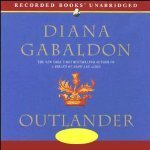 I took advantage of the time I had during a recent car trip to finish Diana Gabaldon's novel Outlander for the third time (but for the first time as an audio book). I have reviewed the book previously. I am a big fan of Gabaldon's, and the first time I read the series, which at that time only included four books, I couldn't wait for the fifth book. When it did finally come out, I didn't get through much of it before I set it aside, so I'm hoping participating in the Outlander Challenge will help me finish the series.
I took advantage of the time I had during a recent car trip to finish Diana Gabaldon's novel Outlander for the third time (but for the first time as an audio book). I have reviewed the book previously. I am a big fan of Gabaldon's, and the first time I read the series, which at that time only included four books, I couldn't wait for the fifth book. When it did finally come out, I didn't get through much of it before I set it aside, so I'm hoping participating in the Outlander Challenge will help me finish the series.
For those not in the know, Outlander is the story of Claire, a nurse during World War II, who travels to the Scottish Highlands for a second honeymoon with her husband Frank and finds herself mysteriously transported about 200 years in the past, where she is almost immediately confronted by her husband's ancestor, Jonathan "Black Jack" Randall, an English officer garrisoned in Scotland. She is rescued from the clutches of Black Jack by members of the Clan MacKenzie, who take her to their stronghold, Castle Leoch. Claire finds herself drawn to Jamie, a young man in the MacKenzie party. She establishes herself as a healer in the castle and though she never stops trying to figure out how to return to Frank, she begins to build a life for herself in the past. Later, she is forced to marry Jamie in order to protect herself from Black Jack and the English army, and it is after that event that her adventures truly begin.
One of the things I noticed for the first time on this reading is the long scenes that in another book might simply have been cut. Gabaldon tends to write scenes and stitch them together later rather than write in a linear fashion. I know this because I have heard her speak about her writing process. It has benefits and drawbacks. One of the benefits is that readers feel they have intimate connections to the characters through vignettes that develop the characters into fully fleshed people. Gabaldon is gifted with description. No reader should have any trouble picturing her scenes. However, one of the drawbacks, and it's something I really only noticed on this read, is that some scenes feel superfluous and don't really develop the plot so much as the characters. I am huge fan of characters and will enjoy a book with good character development over a book with weaker characters and a fast, tight plot, but on this read, I really noticed the fact that much of the writing was unnecessary. Given the length of the book, that is kind of a problem. And the books only progressively get longer. I may not mind as much with the rest of the series because I have only read the next three books once, and I have never read the final three. I might find I enjoy the ride a little more when the plot is not quite as familiar, and truthfully, I don't think most readers would have a problem with the superfluous scenes given how engaging a writer Gabaldon is.
Davina Porter is a superb reader, and listening to the books will give readers a whole new appreciation for Gabaldon's Scots.
Rating: 4 out of 5 stars
I'm counting this book as my romance novel for the Mixing it Up Challenge.
[image error]
Post © Dana Huff
Outlander (audio), Diana Gabaldon

February 28, 2012
Top Ten Books I’d Give a Theme Song To
 This is an interesting topic. I’ll try to do it justice.
This is an interesting topic. I’ll try to do it justice.
The Great Gatsby , F. Scott Fitzgerald: “Uninvited” by Alanis Morissette. This is perhaps kind of an odd choice, given the song has no connection to the 1920′s or jazz, but if you listen to the lyrics, they essentially describe how Daisy seems to feel about Gatsby.
Click here to view the embedded video.
Heart of Darkness , Joseph Conrad: “Head Like a Hole” by NIN. OK, this song is really aggressive and may not jump out at you when you think of Heart of Darkness, but again, the lyrics seem to speak to the book’s themes. My favorite is comparing Kurtz’s last words, “The horror!” to the last line of the song, “You know what you are.” Isn’t that the horror Kurtz was talking about? The horror of realizing what he was? Of course that line is whispered on the recording, and I didn’t hear it in this video. But still.
Click here to view the embedded video.
Revolution , Jennifer Donnelly: “Shine on You Crazy Diamond” by Pink Floyd. I chose this song mainly because it is a motif in the story itself. The song becomes important to Andi both for its message and music.
Click here to view the embedded video.
Miss Peregrine’s Home for Peculiar Children , Ransom Riggs: “People are Strange” by The Doors. I am not a huge fan of The Doors. I liked them a lot more when I was in high school. However, I can’t deny there are some strange people in Riggs’s book.
Click here to view the embedded video.
The Secret History , Donna Tartt: “The Killing Moon” by Echo and the Bunnymen. Any list like this is better for an Echo and the Bunnymen song. Plus I think the sort of gothic nature of the song (and the fact that it was recently featured in a commercial with vampires) goes with the book’s atmosphere. “Fate… up against your will” describes Richard Papen’s complicated feelings about Bunny’s murder. Plus, “killing.”
Click here to view the embedded video.
Wuthering Heights , Emily Brontë: “Wuthering Heights” by Kate Bush. Kind of a no-brainer. This video is nearly as weird as Catherine Earnshaw.
Click here to view the embedded video.
Much Ado About Nothing , William Shakespeare: “Sigh No More” by Mumford & Sons. Maybe because the song just alludes to a song in the play and quotes pieces of the play, but it fits anyway.
Click here to view the embedded video.
Beowulf , Anonymous: “The Immigrant Song” by Led Zeppelin. Because VIKINGS! That’s why.
Click here to view the embedded video.
Interview with the Vampire , Anne Rice: “Moon Over Bourbon Street” by Sting. Yes, he actually was inspired to write the song because of Rice’s book. Fitting.
Click here to view the embedded video.
The Catcher in the Rye , J. D. Salinger: “How Soon is Now?” by The Smiths. The song’s narrator is an angry, misunderstood loner, just like Holden Caulfield. And honestly, I think what Holden really does want is to be loved. Just like everybody else does.
Click here to view the embedded video.
[image error]
Post © Dana Huff
Top Ten Books I’d Give a Theme Song To








